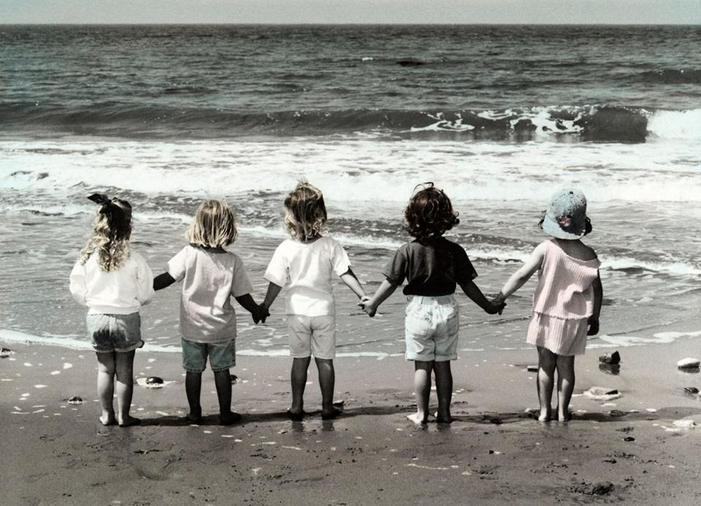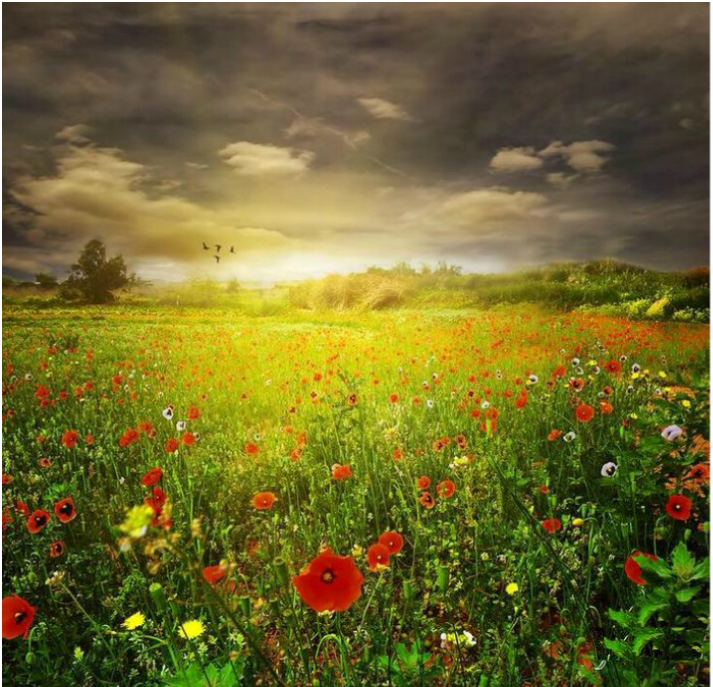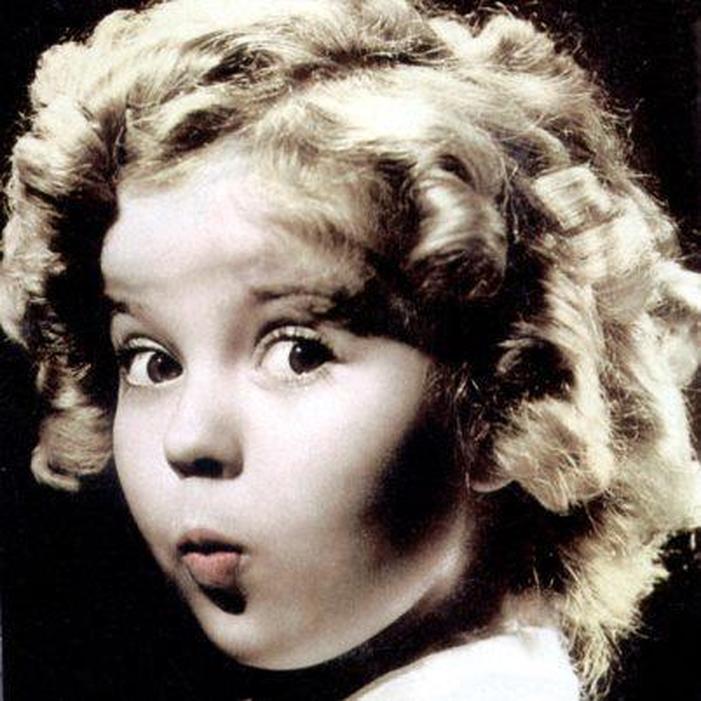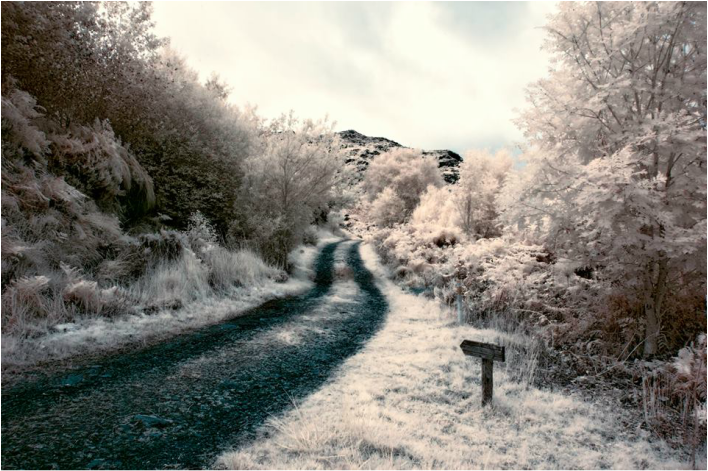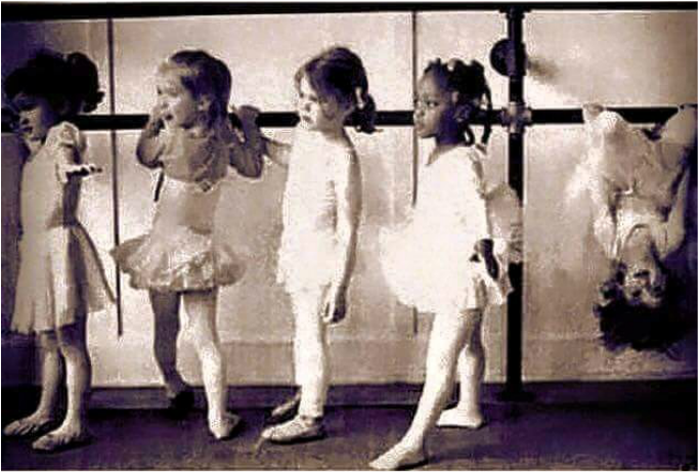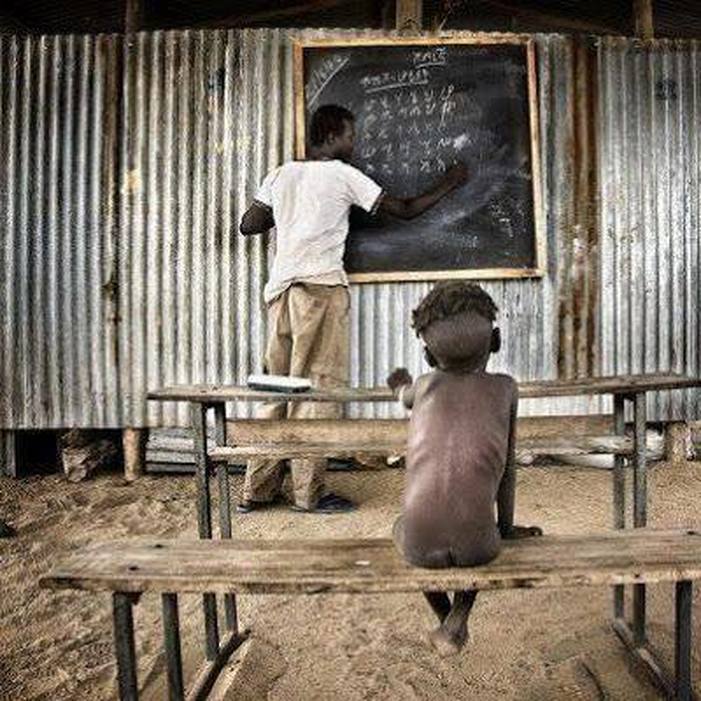- Home
- Site Index
- About Me
-
My Books
- Book List & Themes
- Strictly for Adults Novels >
-
Tales from Portlaw
>
- No Need to Look for Love
- 'The Love Quartet' >
-
The Priest's Calling Card
>
- Chapter One - The Irish Custom
- Chapter Two - Patrick Duffy's Family Background
- Chapter Three - Patrick Duffy Junior's Vocation to Priesthood
- Chapter Four - The first years of the priesthood
- Chapter Five - Father Patrick Duffy in Seattle
- Chapter Six - Father Patrick Duffy, Portlaw Priest
- Chapter Seven - Patrick Duffy Priest Power
- Chapter Eight - Patrick Duffy Groundless Gossip
- Chapter Nine - Monsignor Duffy of Portlaw
- Chapter Ten - The Portlaw Inheritance of Patrick Duffy
- Bigger and Better >
- The Oldest Woman in the World >
-
Sean and Sarah
>
- Chapter 1 - 'Return of the Prodigal Son'
- Chapter 2 - 'The early years of sweet innocence in Portlaw'
- Chapter 3 - 'The Separation'
- Chapter 4 - 'Separation and Betrayal'
- Chapter 5 - 'Portlaw to Manchester'
- Chapter 6 - 'Salford Choices'
- Chapter 7 - 'Life inside Prison'
- Chapter 8 - 'The Aylesbury Pilgrimage'
- Chapter 9 - Sean's interest in stone masonary'
- Chapter 10 - 'Sean's and Tony's Partnership'
- Chapter 11 - 'Return of the Prodigal Son'
- The Alternative Christmas Party >
-
The Life of Liam Lafferty
>
- Chapter One: ' Liam Lafferty is born'
- Chapter Two : 'The Baptism of Liam Lafferty'
- Chapter Three: 'The early years of Liam Lafferty'
- Chapter Four : Early Manhood
- Chapter Five : Ned's Secret Past
- Chapter Six : Courtship and Marriage
- Chapter Seven : Liam and Trish marry
- Chapter Eight : Farley meets Ned
- Chapter Nine : 'Ned comes clean to Farley'
- Chapter Ten : Tragedy hits the family
- Chapter Eleven : The future is brighter
-
The life and times of Joe Walsh
>
- Chapter One : 'The marriage of Margaret Mawd and Thomas Walsh’
- Chapter Two 'The birth of Joe Walsh'
- Chapter Three 'Marriage breakup and betrayal'
- Chapter Four: ' The Walsh family breakup'
- Chapter Five : ' Liverpool Lodgings'
- Chapter Six: ' Settled times are established and tested'
- Chapter Seven : 'Haworth is heaven is a place on earth'
- Chapter Eight: 'Coming out'
- Chapter Nine: Portlaw revenge
- Chapter Ten: ' The murder trial of Paddy Groggy'
- Chapter Eleven: 'New beginnings'
-
The Woman Who Hated Christmas
>
- Chapter One: 'The Christmas Enigma'
- Chapter Two: ' The Breakup of Beth's Family''
- Chapter Three: From Teenager to Adulthood.'
- Chapter Four: 'The Mills of West Yorkshire.'
- Chapter Five: 'Harrison Garner Showdown.'
- Chapter Six : 'The Christmas Dance'
- Chapter Seven : 'The ballot for Shop Steward.'
- Chapter Eight: ' Leaving the Mill'
- Chapter Ten: ' Beth buries her Ghosts'
- Chapter Eleven: Beth and Dermot start off married life in Galway.
- Chapter Twelve: The Twin Tragedy of Christmas, 1992.'
- Chapter Thirteen: 'The Christmas star returns'
- Chapter Fourteen: ' Beth's future in Portlaw'
-
The Last Dance
>
- Chapter One - ‘Nancy Swales becomes the Widow Swales’
- Chapter Two ‘The secret night life of Widow Swales’
- Chapter Three ‘Meeting Richard again’
- Chapter Four ‘Clancy’s Ballroom: March 1961’
- Chapter Five ‘The All Ireland Dancing Rounds’
- Chapter Six ‘James Mountford’
- Chapter Seven ‘The All Ireland Ballroom Latin American Dance Final.’
- Chapter Eight ‘The Final Arrives’
- Chapter Nine: 'Beth in Manchester.'
- 'Two Sisters' >
- Fourteen Days >
-
‘The Postman Always Knocks Twice’
>
- Author's Foreword
- Contents
- Chapter One
- Chapter Two
- Chapter Three
- Chapter Four
- Chapter Five
- Chapter Six
- Chapter Seven
- Chapter Eight
- Chapter Nine
- Chapter Ten
- Chapter Eleven
- Chapter Twelve
- Chapter Thirteen
- Chapter Fourteen
- Chapter Fifteen
- Chapter Sixteen
- Chapter Seventeen
- Chapter Eighteen
- Chapter Nineteen
- Chapter Twenty
- Chapter Twenty-One
- Chapter Twenty-Two
-
Celebrity Contacts
-
Thoughts and Musings
- Bereavement >
- Nature >
-
Bill's Personal Development
>
- What I'd like to be remembered for
- Second Chances
- Roots
- Holidays of Old
- Memorable Moments of Mine
- Cleckheaton Consecration
- Canadian Loves
- Mum's Wisdom
- 'Early life at my Grandparents'
- Family Holidays
- 'Mother /Child Bond'
- Childhood Pain
- The Death of Lady
- 'Soldiering On'
- 'Romantic Holidays'
- 'On the roof'
- Always wear clean shoes
- 'Family Tree'
- The importance of poise
- 'Growing up with grandparents'
- Love & Romance >
- Christian Thoughts, Acts and Words >
- My Wedding
- My Funeral
- Audio Downloads
- My Singing Videos
- Bill's Blog
- Contact Me
|
Thought for today:
"Whom among us can ever forget that very first time we saw the seaside as a child and looked out in wonder across the vast horizon? Isn't it simply marvellous how a child not yet attending school, possesses the imagination to project their thoughts into the future in the most positive of ways, thinking about the things they may one day do and the places they hope to see, when we clever adults who think we know so much about the world cannot see beyond our nose ends nor dream beyond our everyday experiences. We are unfortunately educated beyond our understanding and generally become adults who know so little about so much. There is so much we can learn from our young. We can learn about the value of having a close friend to whom we can talk to whenever worried.We can learn from their innate instinct to trust the people they love, their innocence of truth, their refusal to distinguish the worth of one person to that of another based on differences between the two and their instinctive gut reaction between what is just and unjust. We would do well to observe their imagination of all things being possible and most important of all, marvel at their ability to jump in puddles for no other reason that there is a puddle in front of them waiting to be jumped in! Children wait not for life's events to come along and take them down this road or that; they chose the path their heart dictates and more often than not they find pleasure and contentment along the way. It behoves all adults therefore to preserve the purity of the child if we are to remain close to all that is good and wholesome. The ultimate measure of any worthwhile society is how it treats, respects and protects both its young and its old!" William Forde: October 30th, 2015. Thought for today:
"What a wonderful day to meet the most beautiful person in the world; yourself! True happiness arises in the first instance from the enjoyment and respect of oneself. When we love self, everything else falls into line and our heart remains open to others. When we are at home with ourselves, there is nobody we are more suited to step out into the world with. When we are happy with what we have and are excited about what we want, we forget the chains of character we willingly wear throughout life. We learn that while forgiveness doesn't necessarily change the past, it does most definitely enlarge the future. Our home life, social life; even our work becomes a place we enjoy to be. I recall as a young Probation Officer realising that while I was happy with myself, I would always remain happy within myself, my home and my work. Despite the sometimes heartbreak of my job, I quickly grew to love my daily work and would have done it for no wages had someone fed and housed me and my family. I discovered that once you do something you love, you never have to work again. Contentment follows when you gradually realise that you already have that which you seek." William Forde : October 29th, 2015. Thought for today:
"It was Plato who said that, 'Beauty lies in the eyes of the beholder.' I must admit that throughout my life I have always been the fondest admirer of intelligence whenever looking for a mate. To me a perfectly framed thought or spoken word has always seemed more attractively fetching than the perfectly formed body; though to witness the combination can be a lethal barometer of temptation to one's sensibilities. You can keep your Barbie Dolls and Baywatch Babes and give me a lady who can think for herself and needs no man to define her in her womanhood or sense of worth. The beauty of a woman lies not in her facial mode but is reflected in her soul. It is the caring that she lovingly gives and the passion that she shows which attracts her to the discerning. She knows that the true value of a genuine smile possesses the power to disarm and is the most inexpensive way to improve one's looks. She can sense her beauty steal inwards as she ages gracefully, knowing that her true beauty grows, not fades with the passing of the years. Whereas wounded women travel the world armed with the cosmetic contents of their vanity case, the intelligent woman carries her beauty within the substance of her inner self. To know the mind of a beautiful woman is to appreciate her body like no other can. It is to understand both the simplicity and sophistication of her adult thoughts whenever disguised in childlike ways of cruel innocence and harmless mischief. The most foolish of men will allow beauty of face to attract their attention when seeking a lifelong mate, while the wisest will let her personality and character capture their heart. Women of substance have long known that beauty is only skin deep, but ugly goes right down to the bone. There can never be a sight more gladdening than to see truth, honesty, compassion and fun writ large across the face of the woman you love.You look and know that her beauty will always remain a joy to behold. What has taken me a lifetime to learn, my dear mother summed up in a few choice words before I'd reached the age of 8 years when she said, 'Billy, all people are beautiful in their own way.' Think of the ways that you are beautiful, express yourself sincerely and lovingly and know that ugliness will never touch your bone of contention I had been due to go into hospital today for a blood transfusion to perk up my pretty features of face, but received a phone call last night saying that my blood count had improved enough to leave me another two weeks. I guess they thought I was pretty enough for my years!" William Forde: October 28th, 2015. Thought for today:
"My dear late mother spent many of her childhood years in the town of Clonmel, which is the largest town in the county of Tipperary. She told me many tales of her childhood. There was the daily six mile return walk to fetch the milk before going to school as she was the eldest of seven children. If she was late back home, her mother would hit her with a brush. Then if she arrived at school later than roll call, the strict nuns would cane her with a partly curved twig that made a swishing sound as it cut into the palm of her hand. It used to be said by the other pupils that the canes which the nuns used were only considered to be broken in after they had broken the spirits of at least six pupils! Being the eldest in our family of seven children, I was always best placed in the family hierarchy to hear mum's tales, which I would then retell to my sister Mary, the second eldest. It was her responsibility to pass it down the line and so forth, so if any sibling never heard any of mum's stories, someone obviously broke the chain of family communication and it is they who remain subject to blame! From all the tales my mother used to tell me, not all were about hard times. I remember the one about the priest's walking stick which would be left outside a parishioner's house whenever the parish priest visited their home. The waking stick was seemingly a signal for anyone else in the village not to disturb the priest in his churchly duties by visiting their neighbour if they saw his walking stick propped up by the wall outside the front door! My mother also told me that there was one particular priest who should never have joined the priesthood as chastity was never a virtue with him. He was said only to visit widows and good looking female parishioners during early afternoon hours when the man of the house would be at his work and he never called on ugly ones! Her sweetest tales however, was obviously her unvarnished ones. She told me that Clonmel derives from the Irish Cluain Meala which means 'Honey Vale' and if anyone should ever doubt that, all they need do was to look at the season of Autumn in Clonmel which endorsed its Irish name. For anyone who is interested in Irish folklore, the section on my website entitled, 'Tales from Portlaw' include the germ of some of my mother's stories about her homeland (freely accessably), which I have used my writing skills and imagination to elaborate. The stories can also be bought in e-book format from www.smashwords.com or in hard copy from amazon and www.lulu.com with all profit going to charity." William Forde: October 27th, 2015. http://www.fordefables.co.uk/tales-from-portlaw.html Thought for today:
'If only one wish' by William Forde: "If only one wish was granted to me, to save spring meadows for all to see would be my wish, my heart's desire to see spectacular poppy fields fire icy hearts, stagnant thoughts and sorry souls back into life where only Nature holds within its ground, eternity.' Copyright William Forde: October 26th, 2015. Thought for today:
"When I first took up post as a new Probation Officer in Huddersfield in 1971, the world was a much different place than it is today. Within a few years in the job, I started to specialise in working with aggressive and sexually deviant behaviour, as these type of offences were largely involuntary at the point of commission and were usually committed on impulse. As a Behaviourist, I had become very interested in all manner of impulsive behaviour which led to offending as it represented a form of action that was beyond the control of the individual at the precise point of commission. Between 1970 and 1975, the overwhelming majority of sexual offences committed were ones of indecent exposure by dirty old men on buses and those of stealing knickers off a washing line and peeping toms. Indecent assaults were less frequent than they are today and the offence of rape was rare to encounter and made national front page news whenever it happened. By the 1990s, it seemed that society had gone mad in the type of offences one person was prepared to commit against another, along with their changing pattern, extent and frequency. Society became more aggressive as a whole and offenders became more depraved and sexually exploitative in their offending pattern of behaviour. There was a rapid increase in offences of rape and violence, and for the first time in my working experience, the age range of both victim and offender was becoming simultaneously younger and older. There were more younger offenders who were prepared to commit sexual and aggressive offences against older victims and more older offenders committing sexual offences against young children. Many of the offences could only be described as being abominable acts of depravity; some involving mere infants and children aged 3 years and 4 years old. Offending patterns were invariably worsened by an increase in alcohol and drug addiction, but it had been a gradual desensitisation in society and an overall loosening of moral constraint which had proved equally responsible for the sexual landslide into the tacit acceptance of lifestyles and behaviour which in 1971 and before, would never have been tolerated. By my retirement from the Probation Service in 1995, I would have willingly welcomed the return of the dirty old man in a mackintosh who exposed himself in public on the Holmfirth bus out of Huddersfield or from behind the bushes of Greenhead Park, along with the occasional washing-line knicker nicker and the Peeping Tom, if it meant that the clock could be put back to 1971. So often I hear the term 'It's progress' being used as an explanation for change as opposed to an excuse for regression. Based upon my twenty five years experience as a former Probation Officer, and believing that the world was a better place to live in before 1971 than after 1971, I would have to conclude that, in the area of sexual offences, 'Progress' is a false assumption, promoted largely by that great heresy of degenerates!" William Forde: October 25th, 2015.  Thought for today: "Chill out man and relax. There's no point getting your knickers in a twist. All that'll do is make you walk funny and some might think you're funny enough without adding to nature. Just lie back and think of................ well think of whatever floats your boat. It works for me. Get that tea on Sheila, I'm starving and I can hear my tummy rumbling!" William Forde: October 24th, 2015. Thought for today:
"'Me? Are you sure it's me you're wanting to play out with? I'm only seven years old!' Putting lipstick on your child's face and making her look an adult before she has had the chance of living a proper childhood is the ultimate crushing of innocence and the biggest illustration of parental neglect. No need to tell her not to talk to strange men, as they'll be sure to talk to her." William Forde:October 23rd, 2015.  Thought for today: "I must admit to liking things of antiquity in my house, but even precious artefacts can never bring as much pleasure to one's eyes as the smile of a happy and healthy child. So as far as the things I own go, if it pains too much to experience them broken in an accident, then better they not be part of my possessions at all has been my motto for many years. Consider: you are visited by your neighbour and her child. During the visit, the child accidentally knocks over and breaks a much-treasured item on a table. The apologies of the child's mother is profuse as the shocked child begins to appreciate the enormity of their boisterous behaviour. At his precise moment, it is far better for the owner of the broken item to remember that however precious in sentimental value the artifact was, the objects of the accidental collision was an ornament on one side and a child on the other. The host should realise that in the grand scale of things, the feelings of the small child matters far more and is of much greater importance than the beautiful broken ornament. No price can ever be placed upon the hurt feeling of an individual nor any amount of wealth purchase the comfort of a friendly visitor to your home. I would sooner break a Ming vase or some other valuable artefact than break the wings of a butterfly or stir hurt and guilt in an innocent child." William Forde: October 22nd, 2015. Thought for today:
"Should ever I need to remind myself of the sheer beauty of the country where I was born, all I need do is to gaze upon this photograph of the Beara Peninsula in West Cork, Ireland. One of the delights of Ireland's landscape is that the Irish travellers matters not if they get lost, as they know in advance that when they do, they lose themselves in the breast of nature's motherland. Ireland is free in her wildness as are her people born there; she is a wanderess within her mountain ranges and green lakes as she dances with the imagination of the traveller and stirs their very soul. Ireland is a country steeped in a proud history of resistance to strife and rebellion to bad government. There are no unholy places on its ground; there are only sacred places and desecrated places. When I am there I feel at home and when I am home, my thoughts are never far from its doorstep. I love Ireland.” William Forde: October 21st, 2015. Thought for today:
'Autumn's Face' by William Forde 'No spring nor summer has such grace as I have seen in autumn's face. Where beauty blends as foxes wild watch walkers stroll down woodland aisle. Where leaves lay scattered on the ground, and earth feels soft and thoughts abound upon our love, our passions spent, our fulfilled dreams, our wild content. All are seen in autumn's face.' Copyright William Forde: October 20th, 2015. Thought for today:
"The only way to deal with bullying is 'to stand your ground', however difficult and anxious that course of action may prove to be. This was the message that I frequently gave children in their school assemblies over 15 years. Only by standing up to the bully will they stop bullying you, whether they be another boy or girl or the employer of an adult. I recall one cheeky young boy aged nine who took my advice on board. When I next visited his school, he approached me adopting a very cocky stance and proudly said, 'Thanks for that advice, Mr Forde. It worked a treat. Having now stood up to my mum and dad, standing up to the rest of the world will be easy!' For any parent out there whose son or daughter is being bullied at school, you could do worse than buy them either of two books of mine which deal with the theme of 'bullying.' The first is called 'Fighter' and is about a boy with stunted growth. The story is about boxing and football and would probably appeal to boys more than girls. The second is called 'Tales of Bernard' and is about a pack of stray pedigree dogs who run roughshod over a town. This book is suitable for girls or boys, child or adult. As with all my books, all profits on each book is kept minimal to keep the books inexpensive and goes to charity. The books are in e-book format from www.smashwords.com or in hard copy from amazon or www.lulu.com." William Forde: October 19th, 2015. Thought for today:
'What makes me love you' by William Forde: 'You want to know what makes me love you, I do not have the means to say. There are no words to match my feelings, no marriage between what is, what may have passed between us then, what weds us to the future now, what makes me yours, what makes you mine, what makes my loving you divine. I just know that I love you.' William Forde: Copyright October, 2015.  Thought for today: "The family should be the safest of havens in an often heartless world, but sadly, too many people are locked out of its affections. Being the member of a large family offers a comprehensive safety net that neither money nor privilege can ever buy. Families are constructed from too many parts ever to be whole unless they stand together through thick and thin. It is not flesh and blood that binds us as one, but the heart and course of the blood that flows between kith and kin. Being the eldest of seven children, born of Irish parents into a working class background where money was always less than was desired, but as much as was needed, I soon learned the main differences between large families and small; the main difference in having six brothers and sisters instead of none at all. I know that larger families tend to talk more loudly then smaller ones do. Often in some social gatherings, when my family of brothers and sisters are having a gentle discussion, strangers, as well as my sibling's marriage partners, will often consider us to be rowing or on the edge of blood spilling! Nothing of the kind! Socialisation is the reason for difference; nothing more and nothing less! Being brought up in different family structures simply leads to us learning about similar things in different ways. All it takes for one person to be quieter and more conventionally polite than another, is always to have had plenty on their plate and to never know hunger. If a parent places food on the table sufficient to feed four or five children only when seven are seated around it, believe me you'll soon learn to shout, or as we say in the Forde Seven, 'make oneself heard above the crowd.' History shows that while peasants are more prone to rioting to secure their daily bread, the gentry are more at home, quietly eating cake and buttered muffins in the peace of their palatial surroundings while all outside their mansion gates starve. Don't get me wrong, my siblings are no more special than yours are, and like a bar of fudge, all are sweet with a few nuts thrown in! We each have our own family problems like every other house in the land, but 'failing to be there for each other during times of need' isn't one of them! There have been a few occasions in my life when I could call upon a friend for help and not receive it there and then, but there has 'never' been a time when I could call upon a family member and not receive it! Being born of Irish parentage, we all naturally believe in superstition and the supernatural spirit. All have had our fortune told at one time or another and my three sisters are known to have often visited spiritualist gatherings and believe in being able to contact spirits that have 'passed over'; though I doubt that any one of them has ever admitted this practice and sought absolution (which is contrary to Catholic Orthodoxy), to the priest in the confessional box! While me and my sister Mary drink little alcohol, our other five siblings more than make up for our deficiency, and while we all believe in ghosts, some of the heavier family drinkers swear they've even seen them from time to time. If you happen to be someone who doesn't believe in ghosts, then you've never been to an Irish wake or even attended an Irish family reunion when the departed are spoken of as though they stood alongside you! If I had but one test of 'true family' it would be this; family means finding forgiveness! No matter what troubles visits a family, however big and hurtful the initial fall out was, blood is thicker than water. However many times a parent quarrels with their child and visa versa, or one brother or sister falls out with their sibling, or who did what to whom, when, where and why; at the end of the day, a loving family should find everything forgiveable. One cannot be at war with a family member and be at peace with either self or their God!" William Forde: October 16th, 2015. Thought for today:
"October is as if Nature has been saving her best until last in order to produce her grand finale. Autumn is Nature's last loveliest smile of the year. The trees are awash with splendour and look so radiant that one is seduced into lying down upon the soft earth that surrounds their base, look upwards through their branches towards the sun and allow one's mind to bathe in their colours. In autumn, a peaceful stream surrounded by beautiful trees is where the rainbow's cradle rests between the rains." William Forde: October 15th, 2015.  Thought for today: "Freedom is an energy force that can never be constrained in an open mind and a joyous heart. It can be present in the silence of inner secrecy or in an act of outright rebellion. It is always best seen in the unconscious expression of a contented child at play with nature and at peace with self. Children possess the ultimate freedom until the adult world seizes it from them and seeks to make them conform to parental will and thought. Like a caged bird of youth they are accepting of all, but flight into fields of fun is what they long for. Children are by nature of their untainted souls, pure at heart. They walk where their hearts lead them and where their imagination beckons without restriction or burden. Once they taste first freedom outside the reins of their parents, they relish it and want more. Once the thought of liberty is understood by them, it takes root and becomes a plant of rapid growth. Cut off that growth and the plant will simply grow stronger and become more resistant to external pressures. If we are good parents, we will recognise that there is no freedom without the right to make mistakes. We will teach our children to think for themselves and if in doubt, ask for evidence and justification. We will tell them freedom lies in being bold and is more enjoyable when you are easy in your harness and can appreciate the responsibility that freedom is attached to. It is both sad and ironic that our children have to grow up in a world today that is less tolerant to the beliefs and customs of others than it ever was in my youth. They see some peoples of foreign lands demand freedom while others in more privileged positions seem bent on denying it beyond kith and kin. If I could teach children one line of poetry it would be from James Russell Lowell's work entitled 'Stanzas on Freedom'. Lowell was a 19th century American romantic poet who was one of the first Americans to rival the popular British poets at the time: 'True freedom is to share all the chains our brothers wear.' Like the great Nelson Mandela who lived in the following century, Lowell also believed that while one person is denied the right to live free, we are all obliged to become outlaws to their cause. I would also acquaint our children with the advantages of denial and show them the ways of the Buddhist belief. Buddhists essentially preach that all civilisation needs to free itself from the shackles of consumerism before they can find liberty of mind and the path of purpose. I always taught my children that only when they have lost themselves in the goodness of the world will they find self, and only after they've discovered who they truly are, only then shall they be free." William Forde: October 14th, 2015. . October 13th, 2015.Thought for today:
"When I was seven years old, me and a friend sneaked into a building up Gomersal, Cleckheaton to spy on some young girls who were doing ballet classes. I was born a rebel and that night when I went home for my tea, I knew I'd seen the one girl in the whole wide world who I wanted to marry when I grew up. I didn't know her name, her circumstances or what became of her in later years, but for that one day in my life, she turned my world upside down!" William Forde: October 13th, 2015. Thought for today:
"Aristotle said that poverty was the parent of revolution and crime. From my knowledge of a number of countries, that observation is pretty close to the mark. At the turn of the New Millennium, I worked in conjunction with the children in all of the schools in Falmouth, Jamaica, which I paired with thirty two white populated Yorkshire schools back in England. The purpose of this trans Atlantic pen-pal project was to have black and white pupils from different countries learn more about each other's way of life with the aim of creating a better understanding of each culture and reducing some aspects of racism that were prevalent from both sides. This project was sanctioned by the Jamaican Minister for Education and Youth Culture along with the Custos (Mayor) of Trelawny, Falmouth. During my participation, I visited Jamaica twice and all 32 Trelawny schools and wrote them a book about their area called, 'Bucket Bill', which raised thousands of pounds for their schools to buy basic materials. The late Nelson Mandela read this book of mine, which he subsequently praised, along with some more African and Indian stories I had written. During my visits to these schools, the distinction between the Primary and Secondary Schools in Falmouth could not have been greater. All parents had to pay school fees to have their children educated and dress them in uniforms which they could ill afford. Between the ages of five and eleven, the children were as good as gold for both parents and school teachers. They wrote on both sides of paper in their class with one quarter of a cut pencil and more often than not, their classroom floor was nothing more than the Jamaican soil they walked on. They seemed to smile all day long, many walked a few miles to school, they ate what their family could afford to give them (often no more than an apple between breakfast and tea time), all were eager to learn, their discipline was faultless and they required little chastisement from their teachers. If you asked them if they were happy, with one voice they would say, 'Yes' and if you asked them if they knew poverty, they would not know what you meant! Despite most families living in a tin shack and eating sparsely, no adult had yet taught their children they were poor. Consequently for the most part, they felt blessed and enriched to live in a land of sunny days and gold sandy beaches and to wake up to with mango trees in their back yards. By the time the children entered Secondary School though, their lives would greatly change and they would quickly learn the true meaning of 'poverty' as they realised that there was no work to be had when they left school, unless it was to train as a teacher or work in an hotel for ten hours a day, being servile to white tourists for a few dollars a day wage. Very few stayed on at school beyond their fourteenth year of life. They learned that the only money they were likely to lawfully earn as a growing adult, was to become a professional beggar or a singer who might one day make it big. The vast majority of girls allowed themselves to become sexualised too early on in life. As for the young men, toting a knife or a gun became a necessary and fashionable accessory as murders and physical assault daily surrounded them. For most, a life of crime seemed to be their only way out. The handsome looking males would spend most of their days living off older female tourists, hoping that the lonely ladies on holiday would fall in love with them, marry them and provide a passport to the west. For many of the young men and women who had to stay, some turned to pushing drugs, others to selling guns; many of the handsome Jamaican ladies found themselves living a life of vice or becoming a partner and mother to a man who was always absent from their household. It was hard to conceive that at the turn of the New Millennium, Jamaica had more churches per square footage than any other country on earth, but also had the the highest murder rate in the world! And before we as a society start to sit on our laurels, bear in mind that many of our young people are also growing up today with an ever increasing sense of hopelessness in the future. The majority of those who are benefit claimants feel trapped in their cushion of comfortable captivity and would prefer to work for a living wage, given the option. Our young teenagers may not have adopted all of the Jamaican responses to perceived poverty and the absence of opportunity for the many, but mark my words, young men and women in Great Britain today have developed a deepening sense of deprivation that borders on the edge of rebellion and civil unrest." William Forde: October 12th, 2015. Thought for today:
"Nature does not hurry, yet it is the most accomplished of all art. Delight in the beauty that surrounds you, for no sky shall ever seem heavy if the heart remains light. However big we stand, we will never be as tall as nature nor excel beyond our capacity. All nature need do to press our attention is to be there. It need not knock for us to be aware of its presence and it never intrudes." William Forde: October 11th, 2015. Thought for today:
"Pride in self or pride in one's achievements is not of itself a bad thing. It can be the catalyst to building self-confidence and is always a common feature in one's good health. Too much pride however can lead to an inflated ego and precipitate a big fall to come. When I was young, my mother used to say to me whenever she was of the view that I was bragging, 'Billy, A proud heart in a poor breast, gives its owner little rest.' At the time, I must confess that I knew not her meaning. Neither would I know that I'd be approaching 50 years of age before her words hit home. In 1990, I wrote my very first children's book and within a matter of a month it was a huge success in most of the schools in West Yorkshire, selling over 4,000 copies. I am not sure if I was a better publicist and crusader than an author at the time, but very early on in my writing career, I got the idea to invite famous faces and national celebrities to visit Yorkshire schools to read from my books to assemblies of school children. This idea of mine proved highly successful (probably because I was writing books to raise awareness with school children about certain issues which adversely affected their lives, such as parental divorce, bullying, bereavement, loss, sexism, homelessness, racism etc etc). It also helped to persuade the celebrity readers to accept my invitation, as I gave all profit from my book sales to charitable causes; something which I am proud to say I have always done since and will do in perpetuity. Because of the huge numbers of famous names who accepted my invitation to read in Yorkshire schools and libraries between 1990 and 2000 (Eight hundred and sixty celebrities from film, screen, stage, sport, church, politics, etc) and the high profile names who publicly endorsed and supported my work (Princess Margaret, Princess Diana, President Nelson Mandela, international film stars like Norman Wisdom, famous authors like Dame Catherine Cookson, Arch Bishops and a number of Prime Ministers and their wives etc), all my book sale-profits enabled me to give over £200,000 to charity. During this ten year heady period of my life I wrote dozens of books, I received a medal from the Queen, I had over 2,000 press articles about my writing and charitable work and was interviewed on either the local television or radio every month. One decade of constant praise and adulation must have gone to my head without it dawning on me. They do say that there is none more haughty than a common place person raised to power. It is also said that they who are most often at the looking glass frequently spin. By 2002, I was doing some work in conjunction with the Minister for Education and Youth Culture in Jamaica between thirty two schools in Falmouth, Jamaica and thirty two schools in Yorkshire. I was still high profile in all the local and regional press and occasionally, I made the national press. I was riding the crest of the wave. One day while visiting my parent's grave in Heckmondwike, I reflected upon the humbleness of my father who actually played international football for Ireland as a man in his twenties and never told his children until I was ten years old; almost eighteen years later. I left my parent's graveside thinking about the difference between my father's natural humbleness and my mounting pride. The next day I made a decision. I thought about the many daily school assemblies where I had brought famous names to read to the children so that they might feel 'special'. I had to conclude that while the children no doubt felt special to have the press and television cameras at their schools, it was the school staff, the children's parents and myself who really felt 'special' by all the fuss and publicity. It was we who knew the celebrity readers to be stars, not the children! The faces of many huge celebrities were strangers to their world. From that moment on, I decided to invite no more celebrity readers to promote my books in schools after Michael Parkinson and Richard Whitely had done their readings. I decided to read to the children myself. After all, I'd written the books; I was more familiar with their content and could therefore dramatise the readings and make the stories more animated, which the children infinitely preferred. I also stopped giving interviews to the press and media, and with two exceptions over the past ten years, I have maintained this decision of a press and media embargo. Over my lifetime, I have found women more expressively open than men. Therefore, haughtiness is harder to hide whenever present in a woman. This trait usually comes across as the high heeled shoe of low standing, whereas pride tends to be more deeply hidden in a man. Since I discovered too much self pride, I have earnestly tried to become more humble in my behaviour. Humility is a great asset if you have it. For those like me who don't possess it naturally, we have to work hard to be genuinely humble. Many think falsely that humility is not an admirable quality to hold, but they are so wrong. Humility is not a weak and timid quality in mankind and it should be carefully distinguished from possessing a groveling spirit. There is such a thing as an honest pride and self-respect. Though we may be servants of all, we should be servile to none." William Forde: October 10th, 2015. Thought for today:
"However bad things may get in life, believe me when I tell you that things can get better. If there is anyone out there who is seriously contemplating committing suicide, please do one thing for me; put it off until tomorrow. So often in life 'time' is of itself the essence to restoring emotional stability and returning one to sanity of purpose. When our minds are in a state of turmoil or our feelings racked with despair, anger, rage or revenge; that is never the time to act upon our inclinations. Emotive impulses are invariably too cloudy for sound judgement.Things always end badly in such circumstances. When I was a Probation Officer many years ago, one of my clients committed suicide by overdose. He was a young man who had never known his parents and had been brought up in Dr. Barnardo Homes. He drove a transit van and dreamed of one day becoming a long distance lorry driver. It was New Year's Eve and a very close woman-friend of his had gone off to work in another part of the country without leaving a forwarding address. His friend was a sometimes bed companion to him, between taking on the roles of big sister and mother also. When 'S' took an overdose in his upstairs flat, immediately after swallowing the bottle of pills, he must have had second thoughts about 'ending it' and threw a chair through his window to presumably call attention and get help. As fate decreed, there was no immediate passer by and by the time that help in the form of an ambulance did arrive, 'S' was dead. He was in his early twenties and apart from me and another flat mate, he had no mourners at his funeral. In my recent adult adult novel, 'Come Back Peter' (Due for publication in November), 'S' is one of my story characters in the book. Whenever I hear of or see another climb back from the abyss, I always think of 'S', who sadly never made it." William Forde: October 9th, 2015. |
|
